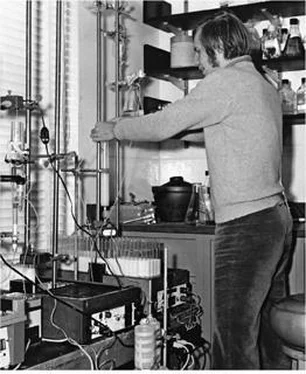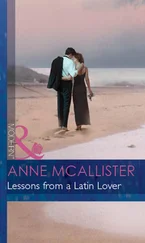James Watson - AVOID BORING PEOPLE - Lessons from a Life in Science
Здесь есть возможность читать онлайн «James Watson - AVOID BORING PEOPLE - Lessons from a Life in Science» весь текст электронной книги совершенно бесплатно (целиком полную версию без сокращений). В некоторых случаях можно слушать аудио, скачать через торрент в формате fb2 и присутствует краткое содержание. Жанр: Биографии и Мемуары. Описание произведения, (предисловие) а так же отзывы посетителей доступны на портале библиотеки ЛибКат.
- Название:AVOID BORING PEOPLE: Lessons from a Life in Science
- Автор:
- Жанр:
- Год:неизвестен
- ISBN:нет данных
- Рейтинг книги:5 / 5. Голосов: 1
-
Избранное:Добавить в избранное
- Отзывы:
-
Ваша оценка:
- 100
- 1
- 2
- 3
- 4
- 5
AVOID BORING PEOPLE: Lessons from a Life in Science: краткое содержание, описание и аннотация
Предлагаем к чтению аннотацию, описание, краткое содержание или предисловие (зависит от того, что написал сам автор книги «AVOID BORING PEOPLE: Lessons from a Life in Science»). Если вы не нашли необходимую информацию о книге — напишите в комментариях, мы постараемся отыскать её.
AVOID BORING PEOPLE: Lessons from a Life in Science — читать онлайн бесплатно полную книгу (весь текст) целиком
Ниже представлен текст книги, разбитый по страницам. Система сохранения места последней прочитанной страницы, позволяет с удобством читать онлайн бесплатно книгу «AVOID BORING PEOPLE: Lessons from a Life in Science», без необходимости каждый раз заново искать на чём Вы остановились. Поставьте закладку, и сможете в любой момент перейти на страницу, на которой закончили чтение.
Интервал:
Закладка:
7. Ask the dean only for what he can give
Both saying and hearing no are unpleasant experiences, making the denier look ungenerous and the denied clueless or impotent. Everyone has a wish list, but when you ask the dean for something, make sure you have thought through how he could reasonably give it without taking a costly political hit. It is quite another matter, however, to ask the dean to petition the university for a change of policy you want. Although a negative reply is always annoying, here neither you nor the dean looks bad personally, and you will at least gain insight into the university's finances and priorities.
12. MANNERS BEHIND READABLE BOOKS
THE DOUBLE HELIX, the story of how Francis and I found the structure of DNA, was published in February 1968—fifteen years after the discovery. That the tale's many unexpected twists should be revealed to the general public was long on my mind, but how to write them up did not crystallize until a spring 1962 dinner in New York City. There Francis and I were being honored with the Research Corporation Prize. Francis could not be there since he was in Seattle delivering three long-scheduled public lectures at the University of Washington. Abby Rockefeller invited me to spend the night at her parents’ home, where I admired her father's large Derain fauve painting of the Thames and beheld her family's porcelain with less appreciation. I walked from East Sixty-fifth Street to the Ambassador Hotel on Park Avenue, then the venue of many such ceremonial affairs. On the dais I was next to Columbia University's literary polymath Jacques Barzun, known to me since my adolescence through his regular appearances on the CBS radio network.
Stimulated by Barzun's conversation, I used my after-dinner acceptance speech to tell the story of our discovery as a very human drama also featuring Maurice Wilkins, Rosalind Franklin, Erwin Chargaff, and Linus Pauling. My unexpected candor elicited much laughter and was later praised for allowing the audience to feel like insiders in one of science's big moments. Feeling jubilant as I walked back along Lexington Avenue to the Rockefeller home, I saw in my future the writing of what Truman Capote would later call the “nonfiction novel.” But since I was scheduled almost immediately to return to England to my mini-sabbatical at Churchill College, Cambridge, I could not see starting to write until my return to Harvard.

Abby Rockefeller

With Cynthia Johnson in Radcliffe Yard

Wally Gilbert and I ride the rhino outside the Harvard Biolabs with Barbara Riddle and blue-eyed Pat Collinge.
In London I initially hoped to use my half of the Research Corporation Prize to commission Francis Bacon to paint Francis Crick; I had recently seen one of Bacon's small portraits in Geneva, and it long lingered in my mind. But the Marlborough Gallery let me know that the Irish-born Bacon painted only close acquaintances. The fact that Francis and Odile had spotted the artist the previous summer in Tangier would not suffice. An hour later, I walked out onto Albemarle Street the contented possessor of one of nine copies of Henry Moore's bronze Head of a Warrior.
The first chapter of what later came to be called The Double Helix was written in Albert and Marta Szent-Györgyi's house on Cape Cod. The summer was coming to an end and my Radcliffe summer assistant, Pat Collinge, was about to join her Harvard boyfriend, Jake, at work on a novel farther out on the Cape. Since the start of summer, Pat's blue eyes and urchin dress made her seem the perfect muse to draw out of me the first pages of my DNA story without apparent effort. Happily, she agreed to be driven down to the Cape in my open MG TF to spend a morning as my typist at Woods Hole before going on to Wellfleet. But I had writer's block for several hours before the words came to me: “I have never seen Francis Crick in a modest mood.” More than half the first chapter was typed out before her boyfriend showed up, leaving me wistfully contemplating how I would finish the rest of the chapter without the encouragement of her blue eyes. It wasn't so easy, and only once back at Harvard would I finish the final paragraphs, whereupon my secretary typed out a complete first chapter.
Events connected to my fall Nobel Prize conspired with the school year to keep me from writing any more until the following summer. It was then I spotted the engagingly pretty Radcliffe senior Cynthia Johnson, eating lunch under the big elm tree in front of the Biolabs. She was with our department's best-looking assistant professor, John Dowling, under whom she was doing summer research in George
Wald's vision lab. The next day I joined them for lunch and soon afterward was playing tennis with Cynthia on the Radcliffe courts. Too soon I learned that she had a steady boyfriend, Malcolm MacKay, who, having just graduated from Princeton, was in Europe before starting Harvard Law School in the fall. Until that time, however, we took day trips together, once to the beach at Nahant, where, scarily, I first noticed that ceremonial overeating had given me a slight belly, the first fat I'd ever observed in my midsection. Later, on Martha's Vineyard, I stayed several weekends at Cynthia's family home in Edgartown, learning not only that her artist mother had drawn the Duke and Duchess of Windsor but that her grandmother was a close friend of Emily Post, whose book on manners precipitated the decline of the WASP ascendancy in America. Thinking that my being a writer as well as a laureate might offer romance enough to dislodge Malcolm from Cynthia's heart, I spent the last two weeks of August writing two more chapters. But when the fall came and Cynthia brought Malcolm to my flat for my approval, I knew I could not compete with his sailboats.By then my free moments were devoted to completing six short chapters on the replication of living molecules for a book to emerge in time for my forthcoming January lectures to talented high school students in Australia. George Gamow had lectured to this Sydney summer school the year before and highly recommended it as an excuse for being in the warm sun during January. I likewise looked forward to avoiding the East Coast doldrums over the Christmas/New Year holidays and so accepted the necessity of writing up simplified versions of my Biology 2 lectures.
One muggy August evening, on the plain wooden desk of my Appian Way flat, I wrote out, “It is very easy to consider man unique among living organisms. Great civilizations have developed and changed our world's environments in ways inconceivable for any other form of life. There has thus always been a tendency to think that something special differentiates man from everything else. These beliefs often find expression in man's religions that try to give an origin to our existence and in so doing to provide workable rules for
conducting our lives. Just as every human life begins at a fixed time, it was natural to think that man did not always exist but that there was a moment of creation perhaps occurring at the same time for man and all other forms of life. These views, however, were first seriously questioned just over 100 years ago when Darwin and Wallace proposed their theories of evolution based on selection of the most fit.”The remainder of this introductory chapter came easily over the next several days, leaving me confident of getting the remaining five pieces done by the end of October. In that case, the book would be ready at the start of the Australian summer school. But pressing tasks for the President's Science Advisory Committee let me send off only three chapters (“Introduction,” “A Chemist's View of the Living Cell,” “The Concept of Template Surfaces”). Later John F. Kennedy's death in Dallas and my father's stroke soon after kept me from writing up the last three lectures. To my relief, my father's weakness on one side was not permanent, and by the time I took him down to Washington to be with my sister over the winter, he could walk to and from Harvard Square using a cane.
Читать дальшеИнтервал:
Закладка:
Похожие книги на «AVOID BORING PEOPLE: Lessons from a Life in Science»
Представляем Вашему вниманию похожие книги на «AVOID BORING PEOPLE: Lessons from a Life in Science» списком для выбора. Мы отобрали схожую по названию и смыслу литературу в надежде предоставить читателям больше вариантов отыскать новые, интересные, ещё непрочитанные произведения.
Обсуждение, отзывы о книге «AVOID BORING PEOPLE: Lessons from a Life in Science» и просто собственные мнения читателей. Оставьте ваши комментарии, напишите, что Вы думаете о произведении, его смысле или главных героях. Укажите что конкретно понравилось, а что нет, и почему Вы так считаете.












